Դոկտոր Ռոջեր Լիպսին բազում կենսագրականների հեղինակ է, արվեստաբան, խմբագիր և թարգմանիչ:

Լինելով Նյու Յորքի «Գյուրջիև» հիմնադրամի հոգաբարձու և Մասաչուսեթսի «Գյուրջիև» ընկերության խորհրդի անդամ՝ նա մի քանի տասնամյակ զբաղվել է Գյուրջիևի ուսմունքով և հեղինակել է «Վերանայված Գյուրջիև. միտքը, կյանքը, ուսմունքները և ժառանգությունը» (2019) ուսումնասիրությունը: Սովորելով Նյու Յորքի համալսարանի գեղարվեստի ինստիտուտում՝ նա ուսումնասիրել է արվեստի և հոգևորի միջև բազմակողմանի կապերը, մասնավորապես, թե ինչպես է դա վերաբերում այնպիսի տարաբնույթ գործիչների ստեղծագործություններին, ինչպիսիք են Անանդա Կումարասվամին (1977) և Թոմաս Մերտոնը (2015): Նրա վերջին գիրքը այս թեմայով «Des Yeux pour voire: une approche du spirituel dans l’art mondial»-ն է (2024): Նա նաև գրել է քաղաքականության և հասարակության մեջ էթիկայի դերի մասին, ինչի վերաբերյալ մտորել են ՄԱԿ-ի գլխավոր քարտուղար Դագ Համարսկյոլդը (2013, 2020) և Չեխիայի նախագահ Վացլավ Հավելը․ այն նաև նրա ներկայիս հետազոտության առարկան է:
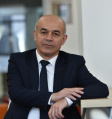
Վահրամ Պետրոսյանը Երևանի պետական համալսարանի հայագիտական հետազոտությունների ինստիտուտի տնօրենն է, պատմական գիտությունների թեկնածու՝ մասնագիտացած արևելագիտության և Մերձավոր Արևելքի քաղաքականության ուղղություններով։ Վահրամ Պետրոսյանը հեղինակ է բազմաթիվ գիտական աշխատությունների՝ նվիրված Միջին և Մերձավոր Արևելքի հետազոտություններին, միջազգային հարաբերություններին և դիվանագիտությանը, ինչպես նաև արտաքին քաղաքականության վերլուծությանը։ Նա զբաղեցրել է ԵՊՀ միջազգային հարաբերությունների և դիվանագիտության ամբիոնի վարիչի (2017–2022) և ԵՊՀ գիտական խորհրդի գիտական քարտուղարի (2006–2012) պաշտոնները։ Տիրապետում է մի շարք լեզուների, այդ թվում՝ հայերեն, ռուսերեն, անգլերեն, թուրքերեն, քրդերեն և եբրայերեն։
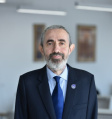
Պրոֆեսոր Ալեքսանդր Վ. Սաֆարյանը Երևանի պետական համալսարանի արևելագիտության ֆակուլտետի թյուրքագիտության ամբիոնի վարիչն է։ Նա տարբեր լեզուներով թյուրքական բանասիրության, հայ-թյուրքական լեզվական, պատմական և մշակութային կապերի, ինչպես նաև մերձավորարևելյան ուսումնասիրությունների վերաբերյալ հարյուրից ավելի գիտական աշխատանքների հեղինակ կամ համահեղինակ է։ Նա հրատարակել է առաջին ժամանակակից թուրքերենի քերականությունը հայերենով (2001), որը հետագայում մի քանի անգամ վերահրատարակվել է, ինչպես նաև համահեղինակել է օսմաներենի վերաբերյալ առաջին հայկական դասագիրքը (2016)։ Տարբեր պաշտոններում նպաստել է մի շարք թյուրքական դասականների ստեղծագործությունների առաջին հայերեն թարգմանությանը, այդ թվում՝ Մահթումքուլի Ֆրագիև Աբայի, ինչպես նաև ղազախական գրականության հիմնարար անթոլոգիայի (2019) «Ղազախական ժողովրդական հեքիաթներ» ժողովածուի (2023): Նա մի շարք ամսագրերի խմբագրական խորհրդի անդամ է ինչպես Հայաստանում, այնպես էլ արտերկրում: Տարիների ընթացքում նա արժանացել է մի շարք հեղինակավոր մրցանակների, այդ թվում՝ «Մահթումկուլի Պիրագի» մեդալին (Թուրքմենստան, 2014), Ղազախստանի Հանրապետության անկախության երեսնամյակի մեդալի՝ նախագահական պարգևով (2021) և Ղազախստանի Աբայի մեդալի:
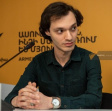
Պրոֆեսոր Արման Ա. Սաֆարյանը Հայ-ռուսական համալսարանի փիլիսոփայության ամբիոնի ավագ դասախոս է և հոդվածներ է հրապարակել փիլիսոփայության և հոգևոր մշակույթի փոխազդեցության վերաբերյալ կոնվերգենտ և մուլտիմեդիա հարթակներում, ինչպես նաև ակադեմիական և կրթական ոլորտներին վերաբերող հիմնարար հարցերի վերաբերյալ։ Նա նաև համահեղինակել է Աբայի ղազախական ավանդական փիլիսոփայական արձակի ակադեմիական հրատարակության թարգմանությունը, բանասիրական և պատմական ակնարկները «Սև խոսք» (2020) և «Ղազախական ժողովրդական հեքիաթներ» (2023) աշխատություններում:
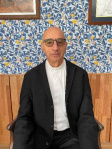
Դոկտոր Ջոզեֆ Ազիզը Մարոնիտների եկեղեցու քահանա է, ապրում է Նոր Հարավային Ուելսի կենտրոնական ափին: Նա հրապարակումներ ունի երեք ոլորտներում՝ կրոնական ուսումնասիրություններ, հնագույն պատմություն և իրավունք (նախկինում եղել է Ավստրալիայի Միության հանրային դատախազության ավագ փոխտնօրենի պաշտոնակատար): Իր կրոնական պարտականություններից բացի՝ նա նաև Նյուպորտի «Գյուրջիևյան» ընկերության նախագահն է, որը հիմնադրվել է 1986 թվականին Ջորջ և Հելեն Ադիների կողմից, որոնք Գյուրջիևի և Ուսպենսկու աշակերտներն էին: Նրա ամենակարևոր հրատարակությունը «Գյուրջիև. միստիցիզմ, խորհրդածություն և վարժություններ» (OUP, 2020) աշխատությունն է, որը ներկայացնում է Գյուրջիևի գործնական միստիցիզմի համակարգի և Հեսիխաստի ավանդույթի միջև շարունակականությունը:
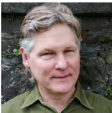
Դոկտոր Սթիվեն Սատքլիֆը նախկինում՝ 2005-2025 թվականներին, Էդինբուրգի համալսարանում կրոնագիտության դասախոս և ավագ դասախոս էր, իսկ ներկայում Սիդնեյի համալսարանում կրոնական ուսումնասիրությունների հրավիրյալ հետազոտող է։ 2015-2018 թվականներին զբաղեցրել է Կրոնների ուսումնասիրության բրիտանական ասոցիացիայի նախագահի պաշտոնը։ Նա ուշ արդիականության ժամանակաշրջանի կրոնագետ է, որի ուսումնասիրությունները 1950 թվականից ի վեր կենտրոնացած են երկու հիմնական ոլորտներում՝ նոր կրոն(ներ) և «հոգևորություն», ինչպես նաև ակադեմիական կրոնական ուսումնասիրությունների պատմություն: Նրա հրատարակությունների թվում են «Նոր դարաշրջանի երեխաները. հոգևոր պրակտիկաների պատմություն» (2003) և երեք համատեղ խմբագրված ժողովածուներ՝ «Նոր դարաշրջանից անդին. այլընտրանքային հոգևորականության ուսումնասիրություն» (2000, դոկտոր Մարիոն Բոումանի հետ), «Նոր դարաշրջանի հոգևորականություն. կրոնի վերանայում» (2014, պրոֆեսոր Ինգվիլդի Սեյլիդ Գիլհուսի հետ) և «Հորինված կրոնների խնդիրը» (պրոֆեսոր Քերոլ Քյուսակի հետ միասին):
Նա հրապարակել է բազմաթիվ հոդվածներ Գյուրջիևյան շարժման մասին։ Որպես առանձին հեղինակ՝ նա հրատարակել է «Ծանր աշխատանք. Գյուրջիևի տեղորոշումը կրոնի ուսումնասիրության մեջ» (2014) և «Գյուրջիևը՝ որպես բրիկոլյոր. «աշխատանքի»՝ որպես բրիկոլաժի ըմբռնումը» (2015): Համահեղինակած հրապարակումներից են «Գ. Ի. Գյուրջիևը և կրոնի ուսումնասիրությունը» (Քերոլ Քյուսակի հետ միասին, 2015), «Գյուրջիևյան ավանդույթի հասանելիության հարցեր. դասեր Մորիս Նիկոլի (1884-1953) ուսումնասիրությունից» (Ջոն Ուիլմեթի հետ համատեղ, 2016), «Աշխատանքը». Գյուրջիևի և Ուսպենսկու ուսմունքները Ռուսաստանում և դրանից դուրս» (Ջոն Ուիլմեթի հետ համատեղ, 2020) և ««Միայն սա արդյունքներ կբերի». Գյուրջիևի վարժությունների կիրառումը որոնման մշակույթում» (Ջոզեֆ Ազիզեի հետ համատեղ, 2024):
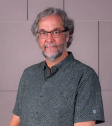
Պրոֆեսոր Մայքլ Փիթմանը ներկայում Հայաստանի ամերիկյան համալսարանի ընդհանուր կրթության առաջին տնօրենն է: Նրա հետազոտություններն ու հրապարակումները հիմնականում կենտրոնացած են եղել Գ. Ի. Գյուրջիևի կյանքի և գրվածքների վրա: Համեմատական գրականության և կրոնի ոլորտում ունենալով հարուստ գիտելիքներ՝ նա վերադառնում է Հայաստան և Թուրքիա՝ հետազոտություններ կատարելու, մասնավորապես՝ Գյուրջիևի կյանքի և սուֆիզմի ավանդույթների ու գործելակերպի վերաբերյալ: Նրա «Դասական հոգևորականությունը ժամանակակից Ամերիկայում. Գյուրջիևի և սուֆիզմի միաձուլումն ու ներդրումը» (Continuum, 2012) գրքածավալաշխատությունը անդրադառնում է Գյուրջիևի ստեղծագործության վրա մշակութային և կրոնական ազդեցություններին, ինչպես նաև այն ազդեցությանը, որը Գյուրջիևն ու սուֆիզմը շարունակում են ունենալ Հյուսիսային Ամերիկայի ժամանակակից կրոնական և հոգևոր մշակույթում: Նրա վերջին հոդվածը՝ «Բեհեղզեբուղի պատմությունների եզրափակում. գյուրջիևյան պատկերացումները հոգու և մարդկային կյանքի կարևորության մասին», հրապարակվել է Alternative Spirituality and Religion Review-ում:
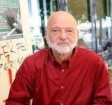
Դիմիտրի Պերեցին փիլիսոփայության ասպիրանտուրայում է սովորել Յեյլի համալսարանում: Ներկայում նա Հունաստանի Գյուրջիևի հիմնադրամի տնօրենն է և բազմիցս դասախոսություններ է կարդացել Փարիզում, Նյու Յորքում, Լոնդոնում և Ամստերդամում՝ Գյուրջիևի ուսմունքին և պրակտիկային վերաբերող թեմաներով: Հեղինակ լինելով մի շարք գրքերի, հոդվածների և պիեսների, որոնք տարբեր ձևերով ուսումնասիրում են այդ թեմաները, նա ուսմունքին մոտենում է հիմնականում մտքի փիլիսոփայության տեսանկյունից:
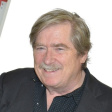
Թի Ջեյ Քլարկը Գյուրջիևի գրվածքները և ուսմունքը ուսումնասիրել է 1974 թվականից ի վեր: Գյուրջիևի աշխատանքից ոգեշնչված՝ նա 25 տարեկանից հետո վերադարձել է քոլեջ և կարիերա սկսել բժշկության, մասնավորապես՝ նյարդաբանության ոլորտում, և 1995 թվականին ավարտել է նյարդաբանության օրդինատուրան Նյու Յորքում: Վերջին երեսուն տարիների ընթացքում նա զբաղեցրել է տարբեր պաշտոններ, այդ թվում՝ որպես մի քանի հիվանդանոցների ինսուլտների բաժանմունքի տնօրեն՝ վկայություններ տալով որպես բժշկա-իրավական փորձագետ և դասավանդելով ուսանողներին և օրդինատորներին թե՛ լսարանում, թե՛ բուժառուի մահճակալի մոտ։ Նա հատկապես հետաքրքրված է եղել «Բեհեղզեբուղի պատմվածքների» էությունը հասկանալու փորձերով, որոնք վերաբերում են բժշկությանը և նյարդաբանության իր մասնագիտությանը: Նրա գրասենյակում կախված էմոլլա Նասեր Էդինին վերագրվող շրջանակի մեջ առնված մեջբերումը. «Մեր մեղքերի համար Աստված մեզ տվել է երկու տեսակի բժիշկներ՝ մեկը՝ օգնելու մեզ մահանալ, մյուսը՝ մեր կյանքը կանխելու համար»:

Դավիթ Ռ. Մոսինյանը Երևանի պետական համալսարանի փիլիսոփայության ամբիոնի դոցենտ է, որտեղ նա ղեկավարում է պատմության, տեսության և տրամաբանության բաժինները: Նրա հիմնական հետազոտական հետաքրքրությունների ոլորտը էպիստեմոլոգիան/իմացաբանությունն է: Հետազոտություններ է կատարել գոյության` Գյուրջիևի փիլիսոփայական լեզվի վերաբերյալ։
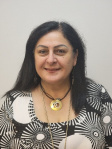
Անի Հայկ Թաթեոս Բոստանյանը բազմակողմանի մասնագետ է՝ գրականության, ֆինանսների և հոգևորականության հարուստ փորձով: Բաղդադի Ալ-Մուստանսիրիա համալսարանից (Իրաք) անգլիական գրականության և հին անգլերենի բակալավրի աստիճան և ԱՄՆ-ի Արիզոնա նահանգի Ֆինիքսի համալսարանից բիզնեսի կառավարման մագիստրոսի աստիճան ստանալով՝ Անին զարմանալի հեշտությամբ կամուրջ է ստեղծել ակադեմիական և գործարար աշխարհների միջև: Որպես Ռեյկիի վարպետ և մասնագետ՝ նա իր աշխատանքին բերում է ամբողջական մոտեցում՝ շեշտը դնելով հավասարակշռության և ներդաշնակության վրա:
Անին նաև նվիրված մանկավարժ և ձեռնարկատեր է ֆինանսների ոլորտում՝ օգտագործելով իր փորձը աճը և նորարարությունը խթանելու համար: Հատկանշական է, որ նա Հայաստանում Գյուրջիևի դպրոցի հիմնադիրներից մեկն է, որտեղ նրա աշխատանքը կենտրոնացած է կենդանի ուսմունքների վերակենդանացման և դրանք համայնքի համար հասանելի դարձնելու վրա: Իր ջանքերի միջոցով Անին ձգտում է ոգեշնչել անձնական աճը, հոգևոր հետազոտությունները և մտավոր հետաքրքրասիրությունը:
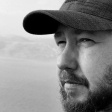
Միխայիլ Կոշուբարովը նավթավերամշակման մասնագիտությունը ստացել է Մոսկվայի ճարտարագիտական էկոլոգիայի պետական համալսարանում (Մոսկվայի քիմիական ճարտարագիտության ինստիտուտ), իսկ աղետների հոգեբանության մասնագիտությունը՝ Ռուսաստանի պետական սոցիալական համալսարանում: Նա ղեկավարում է Մոսկվայի Գյուրջիևի խումբը (միացել է 2004 թվականին) և Գյուրջիևի տաճարային պարերի և շարժումների խումբը, որոնք ակտիվորեն զբաղվում են Գուրջիևի գրականության «մաքուր» և լիովին իսկական տեքստերի թարգմանությամբ և հրատարակմամբ: Խումբը 2011 թվականին մեկնարկել է «Գյուրջիև. չորրորդ ուղի» շարքը, որում մինչ օրս լույս է տեսել ութ գիրք: Կոշուբարովի ղեկավարությամբ Մոսկվայում անցկացվում են շարժման շաբաթական դասընթացներ, ինչպես նաև կանոնավոր հանդիպումներ՝ Պ. Դ. Ուսպենսկու «Հրաշալիի որոնումներում» գրքում նկարագրված գաղափարներն ուսումնասիրելու համար, և ամսական բաց հանդիպումներ՝ նվիրված աշխատանքի գաղափարներին: Միևնույն ժամանակ, այլ կից խմբեր ուսումնասիրում են գաղափարներն ու շարժումները Ռուսաստանի և ԱՊՀ մի շարք քաղաքներում:
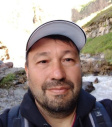
Դոկտոր Ալեքսեյ Իսկակովը Ռուսաստանի գիտությունների ակադեմիայի Մոսկվայի ֆիզիկայի և տեխնոլոգիայի ինստիտուտի գիտնական է, հետազոտական մասնագիտացմամբ հաշվողական ֆիզիկայի և խաղերի տեսության ոլորտներում: Նա մի քանի տարի զբաղվել է Գյուրջիևի ստեղծագործությունների տեքստային վերլուծությամբ:

Մայքլ Ա. Գուրջյանը դերասան, կինոռեժիսոր և գրող է: Նա արժանացել է «Էմմի» մրցանակի՝ «Մինի-սերիալում կամ հատուկ թողարկման մեջ երկրորդ պլանի լավագույն դերասան» անվանակարգում՝ «Դավիթի մայրը» (1994) հեռուստաֆիլմում Դեյվիդ Գուդսոնի դերի համար: Որպես ռեժիսոր՝ Գուրջյանը ճանաչում է ստացել իր առաջին խոշոր անկախ ֆիլմի՝ «Պատրանք»-ի համար (2004), որը նա գրել, բեմադրել և գլխավոր դերում խաղացել է Քըրք Դուգլասի հետ միասին։ Երկու տասնամյակ նա Սան Ֆրանցիսկոյում զբաղվել է Գյուրջիևի ստեղծագործության ուսումնասիրությամբ։
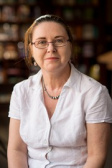
Քերոլ Մ. Քյուսակը Սիդնեյի համալսարանի կրոնական ուսումնասիրությունների պրոֆեսոր է: Նա միջնադարագետ է, և նրա դոկտորական թեզը հրատարակվել է «Conversion Among the Germanic Peoples» վերնագրով (Cassell, 1998): Այժմ հիմնականում ուսումնասիրում է ժամանակակից կրոնական միտումները և արևմտյան էզոտերիզմը: Նրա գրքերի թվում են (Քեթրին Բուլջանի հետ համատեղ) «Անիմե, կրոն և հոգևորականություն. պրոֆան և սրբազան աշխարհներ ժամանակակից Ճապոնիայում» (Equinox, 2015), «Հորինված կրոններ. երևակայություն, գեղարվեստական գրականություն և հավատք» (Ashgate, 2010) և «Սրբազան ծառը. հին և միջնադարյան դրսևորումներ» (Cambridge Scholars Publishing, 2011): Նա խմբագրել է (Ալեքս Նորմանի հետ համատեղ) «Նոր կրոնների և մշակութային արտադրության ձեռնարկը» (Brill, 2012) և (Պավոլ Կոսնաչի հետ համատեղ), «Գեղարվեստական գրականություն, հորինվածք և հիպերիրականություն. ժողովրդական մշակույթից մինչև կրոն» (Routledge, 2017) գրքերը: Նա «Գրականություն և գեղագիտություն» (Սիդնեյի գրականության և գեղագիտության ընկերության) և «Դեսունի մտքի և Արևելյան Ասիայի կրոնների հանդեսի» (Դեջինի համալսարան, Հարավային Կորեա) խմբագիրն է։
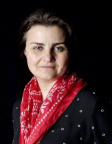
Դր. Գայանե Շագոյանը ՀՀ ԳԱԱ հնագիտության և ազգագրության ինստիտուտի առաջատար գիտաշխատող, մոտ իննսուն հրապարակումների հեղինակ է։ Նրա հիմնական հետազոտական հետաքրքրությունների շրջանակը ներառում է առօրյա կյանքը, քաղաքային մարդաբանությունը և հիշողության ուսումնասիրությունները։ Նա բազմիցս գրել է Ալեքսանդրապոլ քաղաքի հասարակական և մշակութային կյանքի մասին։
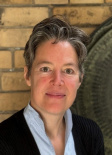
Պրոֆեսոր Էլկե Շողիկ Հարթմանը օսմանագետ է՝ մասնագիտացած 19-րդ և 20-րդ դարի սկզբի օսմանյան և հայկական պատմության մեջ, աշխատում է Բեռլինի ազատ համալսարանի օսմանագիտության և թուրքագիտության ամբիոնում։ Նրա հետազոտական հետաքրքրությունները հիմնականում կենտրոնացած են ռազմական պատմության և բռնության պատմության, Օսմանյան կայսրության հայկական նահանգների միկրո պատմության, օսմանյան և հայկական ինքնապատումների, հիշողության և պատմագրության, ինչպես նաև անդրօսմանյան կապերի վրա։ 2010 թվականին նա համահիմնադրել է Օսմանյան կայսրությունում հայերի առօրյա կյանքի և մշակույթի վերաբերյալ «www.houshamadyan.org» նախագիծը, իսկ 2016 թվականին՝ Բուդապեշտի Պետեր Պազմանիի անվան կաթոլիկ համալսարանի հայագիտության ամբիոնը։
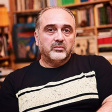
Պրոֆեսոր Լևան Խետագուրին Վրաստանի արվեստի հետազոտությունների ինստիտուտի տնօրեն, Վրաստանի պետական տեխնիկական համալսարանի ՅՈՒՆԵՍԿՕ-ի ամբիոնի համակարգող և Վրաստանի՝ Գյուրջիևի անվան կենտրոնի տնօրեն, թատերագիտության, բարձրագույն արվեստի կրթության, մշակութային քաղաքականության և հետազոտությունների միջազգային փորձագետ է: ՅՈՒՆԵՍԿՕ-ի գործադիր խորհրդի և Եվրոպական մշակութային խորհրդարանի, ինչպես նաև Բրազիլիայի, Չինաստանի, Իտալիայի և այլ երկրների միջազգային տարբեր հաստատությունների և խորհրդատվական ու գիտական խորհուրդների անդամ լինելով՝ նա 1980-ականների վերջից ի վեր ներգրավված է եղել միջազգային մշակութային փոխանակման բազմազան ծրագրերում, իսկ 1990 թվականից ի վեր մասնակցել է մի քանի հարյուր տեղական և միջազգային նախագծերի՝ որպես նախաձեռնող, ղեկավար, պրոդյուսեր կամ մասնակից։ Բացի դրանից՝ դասախոսություններ է կարդացել և սեմինարներ կազմակերպել աշխարհի տարբեր երկրներում: Հեղինակ է դրամայի վերաբերյալ մի քանի մենագրությունների, որոնց համար արժանացել է Շվեդիայի գրողների գիլդիայի մրցանակին (2000)։
Հրապարակել է ութսունից ավելի հոդվածներ և թարգմանություններ, որոնք լույս են տեսել բազմաթիվ լեզուներով իր հիմնական հետազոտական ոլորտների՝ թատրոնի և կատարողական արվեստի վերաբերյալ։ 2019 թվականին՝ Գյուրջիևի անվան Թբիլիսիի ինստիտուտի (GIT) հիմնադրման օրը, նա վերջին երկու տասնամյակների ընթացքում առաջ է մղել Գյուրջիևի ուսմունքի ուսումնասիրությունը՝ անցկացնելով միջազգային երկու աշխատաժողով (2007, 2022) և ինտերակտիվ ցուցահանդես (2020), նկարահանելով վավերագրական ֆիլմ (2021), վրացերեն թարգմանելով նրա «Հրաշագործների պայքարը» (2019) և Թոմաս և Օլգա դե Հարթմանների «Մեր կյանքը պարոն Գյուրջիևի հետ» (2022), խմբագրելով Գյուրջիևի «Կյանքը իրական է միայն այն ժամանակ, երբ ես կամ» ( 2009) գրքի վրացերեն տարբերակը և հեղինակելով «Գյուրջիևը և քսաներորդ դարի մշակույթը» աշխատությունը։
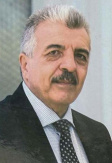
Գյումրու Գյուրջիևի անվան հայկական կենտրոնի հիմնադիր Ավետիք Մելիք-Սարգսյանը վերջին քսանհինգ տարիների ընթացքում ուսումնասիրել է Գեորգի Գյուրջիևի կյանքը Հայաստանում: Հայաստանի պետական արխիվում կատարված ուսումնասիրությունների ընթացքում նա հայտնաբերել է Գյուրջիևի ընտանիքի՝ Ալեքսանդրապոլում քաղաքացիական-իրավական գրանցման, ինչպես նաև նրանց տան, փողոցի և արժեքավոր այլ կենսագրական տվյալների վերաբերյալ փաստաթղթեր: Գյումրու հին գերեզմանատանը 1995 թվականին նրան հաջողվել է գտնել Գյուրջիևի հոր տապանաքարը՝ այդպիսով փրկելով այն կորստից: Որպես պատմաբան՝ նա համեմատել և ուղղել է հայկական պատմական վայրերի, հատուկ անունների և փիլիսոփայական տերմինների ոչ ճշգրիտ թարգմանությունները, որոնք հանդիպում են Գյուրջիևի «Հանդիպումներ ուշագրավ մարդկանց հետ» և «Բեհեղզեբուղի պատմությունները իր թոռնիկին» գրքերի անգլերեն, ռուսերեն և ֆրանսերեն հրատարակություններում: Նա հրապարակումներ ունի «Շիրակի պատմամշակութային ժառանգությունը», ՀՀ ԳԱԱ Շիրակի հայագիտական հետազոտությունների կենտրոնի ութերորդ միջազգային գիտական նստաշրջանում (2010), Լոս Անջելեսի «Համայանապատկեր» գրական և մշակութային ամսագրում (2018) և մի շարք այլ գիտական ամսագրերում։ Նրա «Գյուրջիևը և Հայաստանը» մենագրությունը նախատեսվում է հրատարակել այս տարվա վերջին։
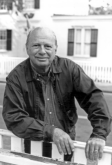
Լոուրենս Ռոզենտալը կոմպոզիտոր, գործիքավորող, դիրիժոր և դաշնակահար է, որը սովորել է Փարիզում՝ Նադյա Բուլանժեի մոտ: Նրա ամենահայտնի ֆիլմերի երաժշտություններն են «Դոկտոր Մորոյի կղզին» և «Տիտանների բախումը»: Նա յոթ անգամ արժանացել է «Էմմի» մրցանակի և առաջադրվել է երկու «Օսկար» և երկու «Ոսկե գլոբուս» մրցանակների: Նա «Գյուրջիև-Դե Հարթման» երաժշտացանկի ճանաչված կատարող է:
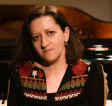
Հայաստանի ամենանշանավոր դաշնակահարուհիներից մեկը՝ «ECM Records»-ի ձայնագրման արտիստ Լուսինե Գրիգորյանը, ելույթ է ունեցել Եվրոպայի, Ամերիկայի, Մերձավոր Արևելքի և Ավստրալիայի բեմերում՝ արժանանալով քննադատների բարձր գնահատականին։ Որպես մենակատար՝ նա ելույթ է ունեցել բազմաթիվ հեղինակավոր փառատոներում և համերգասրահներում, ինչպիսիք են՝ Ամստերդամի հոլանդական փառատոնը, Բոզարը Բելգիայում, Գյուլբենկյան դահլիճը Լիսաբոնում, Նոստալգիայի փառատոնը Լեհաստանում և Կանբերայի միջազգային երաժշտական փառատոնը և այլն։ Գրիգորյանի «ECM Records»-ի կողմից թողարկված «Կոմիտաս. յոթերգ» ալբոմում ներառված են նշանավոր հայ կոմպոզիտոր Կոմիտասի դաշնամուրային ստեղծագործությունները: Ինչպես նշում է Փոլ Գրիֆիթսը՝ «Լուսինե Գրիգորյանի մեջ Կոմիտասի դաշնամուրային երաժշտությունն ունի մեկնաբան, որը խորապես տիրապետում է ոչ միայն էջի բովանդակությանը, այլև ամբողջ ժողովրդական երաժշտության ֆոնին: Նրա լեգատո ֆրազավորումը կարող է ակնարկել դուդուկի, ստակատոները՝ թառի մասին. այստեղ նաև կան հարվածային գործիքներ և զուռնա՝ ժողովրդական ռիթմի ճկունության հետ միասին: Նա նաև իր նվագում հասնում է գյուղական կամ ծիսական երաժշտությանը բնորոշ խորհրդավոր ներկայության»: Գրիգորյանը Երևանի Կոմիտասի անվան պետական կոնսերվատորիայում դաշնամուրի պրոֆեսոր է:
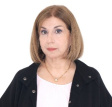
Դոկտոր Լիլիթ Երնջակյանը ՀՀ ԳԱԱ արվեստի ինստիտուտի առաջատար գիտաշխատող է և Երևանի Կոմիտասի անվան պետական կոնսերվատորիայի պրոֆեսոր։ «Արարատ» միջազգային գիտությունների ակադեմիայի (Փարիզ) թղթակից անդամ, ավանդական երաժշտության միջազգային խորհրդի և Հայաստանի կոմպոզիտորների միության անդամ է։ Նրա հիմնական հետազոտական հետաքրքրությունները ներառում են հայկական սրբազան և բարդ ավանդույթները, ինչպես նաև հայկական, իրանական և թուրքական երաժշտական ոլորտների փոխազդեցությունները, կոմպոզիտորական ժամանակակից արվեստը։ Տեղական և միջազգային կոնֆերանսներում պարբերաբար զեկուցումներով հանդես գալով՝ նա հեղինակել է մոտ ութսուն հոդված՝ հայերեն, ռուսերեն և անգլերեն լեզուներով։ Նրա յոթ մենագրություններից են՝ «Հայ-իրանական երաժշտական կապերի պատմությունից» (1991) և «Աշուղական սիրավեպը մերձավորարևելյան երաժշտական փոխհարաբերությունների համատեքստում» (2009)։ Նրա վերջին՝ «Ալան Հովհաննեսի երաժշտական աշխարհը. Արևելք-Արևմուտք խաչմերուկ» (Cambridge Scholars Publishing, 2023) հատորը նվիրված է հայ-ամերիկյան ամենաբեղուն և ականավոր կոմպոզիտորներից մեկի երաժշտական ժառանգությանը՝ Արևելք-Արևմուտք մշակութային փոխազդեցությունների համատեքստում։
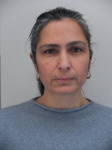
Վերգինե Գյուլբենկյանը, Մ. Ֆիլ (Օքսոն), BCST, RCST, գանգասրբոսկրային թերապիայի մասնագետ է, բնակվում է Լոնդոնում: Ներկայացման պատմողականության ուժը որպես ուղղակի, անմիջական հաղորդակցման միջոց ուսումնասիրելու նպատակով նա ուսումնասիրել է հայկական աշուղական ավանդույթը, որի հիման վրա նկարահանել է վավերագրական ֆիլմ: Նա երեք տասնամյակ եղել է Գյուրջիևի ուսմունքի ուսանող և Գյուրջիևի ստեղծագործության կիրառող, ինչպես նաև Գյուրջիևի շարժումների` նրա կյանքի ավելի լայն փիլիսոփայության մեջ ինտեգրման խորաթափանց վերլուծաբան է:
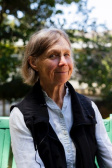
Դոկտոր Սինթիա Բուրժոն ժամանակակից միստիկ է, եպիսկոպոսական քահանա, գրող և միջազգային ճանաչում ունեցող միջոցառումների վարող։ Նա իր ժամանակը բաժանում է միայնության և Մեն նահանգում գտնվող իր ծովափնյա ճգնավորական տան շուրջը ջրերում նավարկելու, ինչպես նաև աշխարհով մեկ ճանապարհորդելու՝ զբաղված գրաֆիկի միջև՝ քրիստոնեական խորհրդածական և իմաստության ուղիների վերականգնումը սովորեցնելու և տարածելու միջև։ Գործողության և խորհրդածության կենտրոնի հիմնական պատվավոր դասախոս է Ալբուքերքում (Նյու Մեքսիկո)։ Նա «Watkins Review»-ի ամենամյա հրատարակության կողմից պարգևատրվել է որպես 2021 թվականի 100 ամենաազդեցիկ հոգևոր մարդկանցից մեկը։

